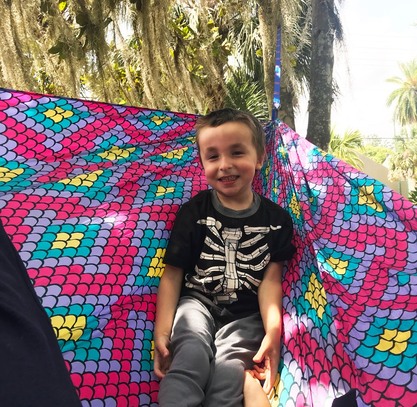 Walter Walter Do you have a preschool child who is challenged by special needs and/or disabilities? Easterseals Charter Schools may be the perfect fit for your little one. In Daytona Beach and DeLand, Easterseals Northeast Central Florida Charter Schools provide hands-on and comprehensive education for students ages 3 to 5. The inclusive classroom setting integrates students with special needs and typically developing students with the Easterseals Child Development Center. This helps all students achieve the best possible outcomes. Just take a look at Walter, a student who graduated last year from the Easterseals Charter School in DeLand. “Walter loves school,” noted his mother. “So for us it was just important that he felt safe and welcomed. Easterseals Charter School was fun for him, and he looked forward to going every day.” Walter’s teachers ensured he transitioned well and gave him whatever downtime he needed. They accommodated his schedule and kept his parents aware of any issues in the classroom. “My son felt safe and comfortable to grow and learn at Easterseals,” Walter’s mom said. “I can’t ask for more from a school.” When it was time to leave the charter school, Walter was ready to face new challenges and learn with his brother and friends at a public school in DeLand. Fast facts about Easterseals Charter School:
Additional programs offered at Easterseals Charter School:
Easterseals Charter School’s Lead Teachers hold teaching certificates from the State of Florida, and must meet the same requirements as teachers in Volusia County public schools. Furthermore, Associate Teachers must have a minimum of an Associate’s Degree (two-year degree) in the early childhood education field. Preferred teacher’s assistants hold a CDA credential. All teaching professionals at Easterseals Charter School are offered opportunities for development and continuing education. Want to know more about Easterseals Charter Schools? Visit us online or call 386-944-7801. Get to know more about why Easterseals Charter Schools may be the perfect learning environment for your little one. 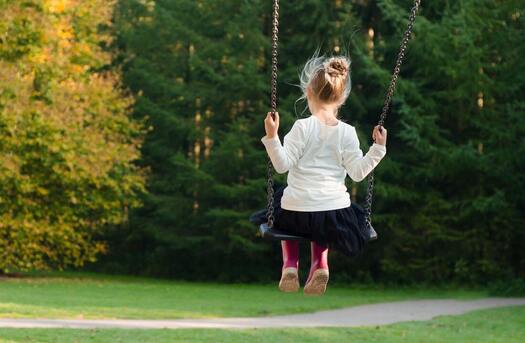 Help your child get into the swing of the new school year with these tips. Help your child get into the swing of the new school year with these tips. It’s hard to believe, but summer vacation is more than halfway over. And while many students need a few weeks to get accustomed to a summer schedule, the same is true for the start of school after a summer full of different routines, environments and structure. Children on the autism spectrum may need extra help and support transitioning back to school too. Easterseals Northeast Central Florida is here to help. Below we’ve collected suggestions on how to best assist young people with autism in successfully starting the new school year; suggestions that also will help parents and caregivers chart the course with greater ease:
And finally, ask for help when you need it, and leave the past in the past. Every school year is different, and challenges change along with them. This year won’t be like the ones before, so be ready with resources and an open mind. Reach out to your friends, family, and your Easterseals support team. We are here to help you and your child succeed in the new school year…and all year round. Sources: AutismSpeaks.org, IanCommunity.org, Chla.org 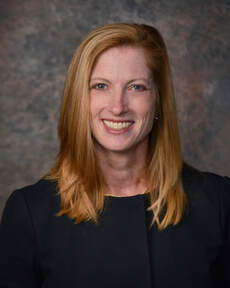 Bev Johnson Bev Johnson By Bev Johnson President/CEO of Easterseals Northeast Central Florida This April, Easterseals Northeast Central Florida welcomed 100 teams and more than 650 participants to its annual Walk With Me fundraiser at Jackie Robinson Ballpark. This year’s event was as impactful as always – bringing awareness to Easterseals' many abilities-focused programs that help young and old reach their highest potential. It also celebrated national Easterseals 100th birthday, which was April 22. It’s true: Easterseals has advocated for people with disabilities for 100 years. But what’s worrisome is how effectively Easterseals will be able to affect the next 100 years with the limits imposed by insurance companies. Our effectiveness in the next century will not be limited by expertise, need or heart; it will be limited by health equity that’s on the verge of extinction. After years of decline, Florida’s uninsured children rate increased in 2018. The issue entered the spotlight when the Georgetown University Center for Children and Families released a report not long ago that stated Florida, after years of declining numbers of uninsured kids, is seeing an increase in uninsured children. It’s a sudden, unsettling trend that all of us should care about, and we should anticipate it will continue until we collectively decide that it’s unconscionable. The report’s authors, Joan Alker and Olivia Pham, state that 12 states had rates of uninsured children that were significantly higher than the national average, and Florida’s included. Of the state’s youth (18 and under) population, 7.3 percent are without health insurance –- that’s around 200,000 children. The authors flatly declare: “The nation’s many years of progress in reducing the number of uninsured children came to a halt and reversed course in 2017.” Florida is at the top of this most unfortunate list. Easterseals Northeast Central Florida, which offers services throughout Volusia and Flagler Counties, experiences this insurance-coverage deficit daily. In addition to offering scholarships to families whose children are uninsured, Easterseals also often offers scholarships to children who are underinsured. This means that families have commercial health group insurance, but their policies do not offer specific therapy disciplines, or they may be severely limited in quantity. (For example, the health group insurance may offer 30 therapy sessions for the child, versus the recommended 3-times-per-week for 6 months recommendation by healthcare providers.) Alternatively, the deductible may be so high that families can't possibly fund services before co-pays set in. The number of children enrolled in Medicaid/CHIP and non-group coverage declined this year in Florida. Why? According to Alker and Pham, factors include national political efforts to repeal the Affordable Care act, the cap on federal Medicaid funding, and the unprecedented delay by Congress to continue CHIP funding (which allowed for its temporary lapse). Further, the study reveals, because many of Florida’s children have immigrant parents (though these children are U.S. citizens themselves), and because the current Administration has instituted policies that target immigrant communities, it’s likely these parents are deterred from enrolling their children in national healthcare programs. According to KIDS COUNT, a project of the Annie E. Casey Foundation to track the well-being of children in the United States, 1.355 million children of immigrant parents lived in Florida in 2016. The number increases yearly. Why does Easterseals care? Why should you care? Easterseals understands that when children do not receive the healthcare they need, they are less successful in school. And then, this lack of achievement follows many of them through life, affecting their ability to thrive as productive members of our communities. This long-term reality impacts our economy, our healthcare system, our workplaces and our neighborhoods…everything. Let’s be Americans who believe in achieving health equity for all Americans. When we believe this, we must support the position by our actions. We need to urge our Representatives to focus on child healthcare priorities. Call the District offices in Washington, DC (202-225-2706), DeLand (386-279-7343), Palm Coast (386-302-0471) or Port Orange (386-756-9798). Our country has the most advanced medical care available in the world. However, how well we can access this care largely depends upon our health insurance allowances. For the vulnerable of our communities – including children who are uninsured and underinsured – obtaining the health care needed to thrive isn’t a right; it’s a privilege. Easterseals is doing its part. Florida, will you do yours?  Hurricane season is June 1 through September 30. Be prepared! Hurricane season is June 1 through September 30. Be prepared! Andrea, Barry and Chantel: They may not be your next-door neighbors right now, but they’re the first three names on the Atlantic tropical cyclones list this year. So, it may be inevitable that you will get to know them! Hurricane season began June 1. There aren’t many hurricane seasons that pass by anymore without a major storm, so the first question today is: Are you prepared? The second question is: Are you prepared to have the smoothest possible experience during a storm as you care your child with disabilities? Now is the time to talk with your children about hurricanes and storms that occur during this time of year. Emphasize that safety is the priority, use age-appropriate language and address their fears and concerns at the get-go. When you’re ready to start preparing, the Federal Emergency Management Association (FEMA) offers several tips for caregivers who play in important role in hurricane preparedness for those with disabilities:
Children on the autism spectrum may have additional needs that should be addressed to successfully navigate severe weather. You can help your child adjust to new surroundings and ease their stress by doing the following:
Remember the usual disaster-supply kit items too. Don’t underestimate the value of an emergency kit that includes items every family should have on hand, such batteries, flashlights, a battery-powered radio, food and hygiene items. Can the kit be easily loaded and transported in your car, with room enough for the family to ride too? A simplified “go-to bag” for your child is another smart idea. Include in it your child’s basic hygiene items, a few changes of clothes, books, games and any necessary medications. As a matter of fact, it’s a great idea for any member of the family! Make one for each family member and include them in the kit. Experts have additional ideas to invite calm into these stormy situations:
When the storm has passed and you’re back home safely, keep an eye on your child and watch for any concerning changes in behavior, or sleeping or eating habits. Residual anxiety can last a while after the hurricane has passed; seek professional help if you’re concerned about post-traumatic stress. Click on the source links below for more details and tips, and as always, consult your Easterseals Northeast Central Florida team members if they can be of service as you prepare. Easterseals is here to support you. Remember, as Richard Cushing once said, “Always plan ahead. It wasn’t raining when Noah built the ark.” Together, we can be prepared for storm season and help our children have the calmest and most secure experience possible. Sources: Lovethatmax.com, hurricanepreparednesstips.com, fema.gov, savethechildren.org, nhc.noaa.gov 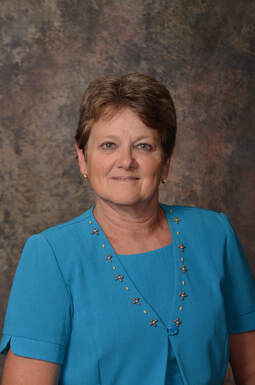 Diana Lindley Diana Lindley By Guest Blogger Diana Lindley My name is Diana Lindley and I’m a proud Easterseals Northeast Central Florida team member. One of my responsibilities at Easterseals is assisting with the Community Equipment Loan Closet. The Community Equipment Loan Closet is a community resource intended to support anyone with physical challenges or disabilities. All equipment is loaned at no charge; Easterseals asks individuals to make a small donation to support the program. The Community Equipment Loan Closet provides canes, crutches, shower chairs and benches, folding walkers, four-wheel walkers with seats and wheelchairs. Recently, I received a note from a client named Sandy describing how much our Loan Closet program has meant to her. She wrote, “Thank you so much for the use of the shower bench! After nearly three weeks (of doing without), being able to take a shower felt like paradise! It was the best shower of my life. “It’s the little things we so often take for granted,” continued Sandy. “Thank you for the service you provide our community. It is truly needed and very much appreciated!" It’s such a good feeling to know that those living in our community have the opportunity to live a full life and have not been forgotten. It always puts a smile on my face knowing that a piece of equipment that was needed was received and knowing how happy it makes the recipient feel. I’m proud to be an Easterseals advocate. We at Easterseals help others by showing love and support to families so they do not feel alone and by providing the services and programs that meet the needs of the families. It is a team endeavor, not a one-man show. When you put the needs of others before your own needs, your life is better for it and you are truly blessed. *** Are you interested in supporting Easterseals’ Community Equipment Loan Closet? Loan Closet accepts donations and always needs donations of durable medical equipment. Simply drop off the equipment weekdays between 9 a.m. – 4 p.m. Easterseals, 1219 Dunn Ave., Daytona Beach, or call to arrange a pickup of large items or large quantities of items. For more information, call 386-944-7821 or toll-free 877-255- 4568, ext. 321. 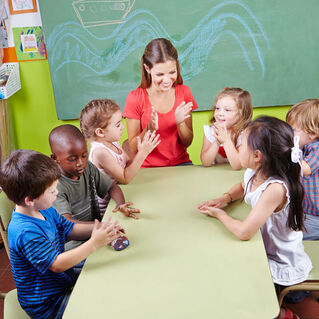 Easterseals Northeast Central Florida is enrolling eligible children for its free voluntary pre-kindergarten (VPK) at its Child Development Centers in Daytona Beach (1219 Dunn Ave.) and DeLand (306 Wisconsin Ave.). To participate in free VPK, a child must be four years old on or before Sept. 1, 2019, be a resident of Volusia County and have a valid Certificate of Eligibility (COE) from the Early Learning Coalition. As part of the program, children enrolled in free VPK receive breakfast. Easterseals’ Child Development Centers provide exceptional student education programs for eligible Volusia County students, including a VPK program, a pre-school that accepts children ages 12 months and older, and charter-school classes. Easterseals’ VPK program offers hands-on and comprehensive education for Pre-K students ages 3-5 with special needs and/or disabilities as defined by their Individual Education Plan (IEP). Easterseals Child Development Centers’ inclusive classroom settings integrates its students with typically developing students of the Easterseals Child Development Center, which assists in helping all students achieve the best possible outcomes. Further, its adult-to-child ratio exceeds the state requirement, allowing for more individualized attention for each child in our care. IEPs outline specific goals and objectives for students to meet his/her own potential. For information about COE, contact the Early Learning Coalition of Flagler/Volusia at (386) 323-2400 or elcfv.org. For information about Easterseals Northeast Central Florida’s Child Development Center in Daytona Beach, contact CDC Program Coordinator Erica Garris for information or a tour at (386) 944-7819 or [email protected]. For more details about the DeLand location, contact Assistant Principal Christina Hopkins at 386-734-4124 or [email protected]. For information about how Easterseals is taking on disability in our communities, visit www.eastersealsnecfl.org. |
Details
Archives
May 2024
Categories
All
|

 RSS Feed
RSS Feed